|
As the COVID-19 pandemic has placed increased pressure on health systems, newly-graduated young doctors around the world have stepped up and shouldered responsibility beyond their years and experience in order to provide care to people in need. This is particularly true in countries with fragile and under-resourced health systems like Bangladesh. Dr. Masura and Dr. Rony are young doctors who completed their medical training in Bangladesh in 2019. Within a matter of months, both started work in the COVID-19 Isolation and Treatment Center (ITC) supported by Community Partners International (CPI) at Sadar District Hospital in Cox’s Bazar. The ITC serves patients with moderate to severe COVID-19 from the surrounding Bangladeshi communities and Rohingya refugee camps. The 52-bed facility, which is the only one of its kind for Bangladeshi nationals in Cox’s Bazar, receives patients referred from the hospital’s Emergency Department and provides a range of diagnostics and care including X-rays, laboratory tests, oxygen, regular monitoring of vital signs and symptoms, medication to treat symptoms, and referral to the Intensive Care Unit for critical cases. As key members of the CPI-supported medical team at the facility, Dr. Masura and Dr. Rony both work three shifts per day. With infections rising in Bangladesh, the team has shown remarkable resilience to hold the line and bring lifesaving COVID-19 care to people in need during the pandemic. Since opening in March, the ITC has served nearly 1,188 patients with an average bed occupancy rate of 80%. More than 900 of these patients were considered at high risk of developing severe health complications due to underlying health conditions. The ITC is divided into two zones - one zone for patients with possible COVID-19 symptoms who have not yet been tested, and a second zone for patients who have returned positive tests. It is a challenging place to work. Space constraints make in-patient care difficult, with insufficient physical distancing when the facility is busy. Medical staff have experienced severe shortages of oxygen and oxygen delivery systems that have occurred across the Bangladesh health system. They have also experienced shortages of other items of equipment such as blood pressure cuffs and oxygen saturation monitors. Due to personnel constraints, it can be difficult for the ITC medical staff to contact experienced doctors for guidance. While there is a messaging system in place, it is not always possible for the staff to access advice late at night when a patient's conditions worsens suddenly. This place additional strain on relatively inexperienced doctors like Dr. Masura and Dr. Rony. The CPI-supported ITC team have helped strengthened Sadar District Hospital's capacity to provide free care to COVID-19 patients with multiple types of clinical comorbidities, and to deal with complex clinical cases. CPI is supporting the cost of providing medicines and medical equipment for COVID-19 care, as well as funding laboratory services for patients who cannot afford these costs. With the ITC running close to capacity, there is concern that a surge in COVID-19 cases could overwhelm Sadar District Hospital, particularly if there is a significant outbreak among the Rohingya refugee communities living nearby. To help to mitigate this risk, CPI is supporting the construction of a new rooftop facility at Sadar Hospital to provide additional COVID-19 isolation and treatment facilities. The new 43-bed facility is scheduled to open in December 2020 and will increase the hospital's bed capacity for moderate to severe COVID-19 cases to 123. Dr. Masura and Dr. Rony were kind enough to spare time from their busy schedules to talk about their work at the ITC and their hopes for the future: Q. Why did you decide to serve at the COVID-19 Isolation and Treatment Center (ITC)? Dr. Masura: “It is my duty and responsibility as a physician to serve during this pandemic.” Dr. Rony: “As a physician, I must be a part of the fight against this pandemic. I can share my knowledge and gather new experience to be better prepared for a future pandemic.” Q. Did you have any concerns when you first started work at the ITC? Dr. Masura: “I was a little concerned about the possibility of catching COVID-19. This is a daily risk that we all take. I was also worried that the ITC might be overwhelmed with sick patients and that I would have to treat them without having the equipment needed to provide adequate care.” Dr. Rony: “I was a little nervous at first, but I’m getting more confident each day. I was also worried that the ward might be overwhelmed with patients. We do face challenges, such as a shortage of oxygen and not enough personnel but so far we’ve been able to cope.” Q. Has it been difficult to juggle your home life with your work at the ITC? Dr. Masura: “Yes, definitely. My friends and family are concerned about contact with me. I am also concerned about contact with them due to my work with COVID-19 positive patients. I have to be very cautious.” Dr. Rony: “Sometimes, yes. My wife went back to our home town to be safer. I couldn’t join my family to celebrate Eid-ul-Adha in July because of the risk of infection. Q. What are the biggest challenges that you face day-to-day working at the ITC? Dr. Masura: “We sometimes run short of PPE. This is a problem faced by health workers all over the world so, as Bangladesh is a low-resource country, this doesn’t surprise me. Due to space limitations, we don’t always have access to space where we can safely remove and dispose of our PPE.” Dr. Rony: “Sometimes the center gets really busy and it’s hard to cope. As this is a new disease, we have to make decisions without having as much information and guidance as we’d like.” Q. What are the most satisfying aspects of your work at the ITC? Dr. Masura: “It is an amazing feeling when people recover and thank me for caring for them. I feel that I have achieved something good here.” Dr. Rony: “The mortality rate on the ward is low, which is an encouraging sign because many patients have underlying conditions that make them especially vulnerable to COVID-19. We have the laboratory supporting us so that we can make accurate diagnoses and design treatment plans. We’ve been able to juggle our resources so far to make sure that we can treat everyone who needs our help. So I feel a sense of achievement for what we are doing here.” Q. What important lessons have you learned during your time working at the ITC?
Dr. Masura: “It is crucial that people follow infection prevention guidelines to stop the spread of COVID-19. Everyone needs to wear masks, avoid crowds, practice hand hygiene, and maintain physical distance as much as possible.” Dr. Rony: “For me, I think patient counseling is so important. When people come to the ITC they are often afraid. We need to spend time to reassure them and make them feel comfortable.” Q. How did you feel when you heard that there were potentially effective vaccines on the horizon? Dr. Masura: “It was an overwhelming to learn that the world would be blessed with rays of hope after all the hardship we have faced. I have been unable to see family and friends for months so I am looking forward to reconnecting with them once the pandemic is over.” Dr. Rony: “I felt a sense of relief. It is a great achievement for medical science. I am very excited to see the results once the vaccine is widely distributed.” Q. Has this experience changed you? Dr. Rony: “Yes, I am more confident now in some aspects of epidemiology which I wasn’t before. I’d like to write a paper about the experience of dealing with the pandemic here in Bangladesh in collaboration with my friends who are working at other COVID-19 isolation and treatment centers around the country.” Q. What are your plans once the COVID-19 pandemic is over? Dr. Rony: “This experience has made me more interested in microbiology and virology. I’m considering taking up postgraduate studies focused on these subjects.” Q. What lessons do you think that Bangladesh and the world can learn from the response to the pandemic? Dr. Rony: “I think that we need to focus more on infection prevention and control measures here in Bangladesh, and to stabilize the health system through investment in more human resources, better equipment, improved training, and operational support. Globally, I think all countries need to cooperate closely with the WHO and the UN to make sure we are better prepared for the next pandemic. We need to carry out more research to inform future pandemic response.” Comments are closed.
|
AuthorCPI Admin Archives
July 2024
Categories
All
|
|
|
COMMUNITY PARTNERS INTERNATIONAL
580 California St Fl 16, Ste 1658, San Francisco, CA 94104-1068, USA [email protected] +1 510 225 9676 We are a registered nonprofit 501(c)(3) Public Charity. TAX ID 94-3375666 |
©
Community Partners International

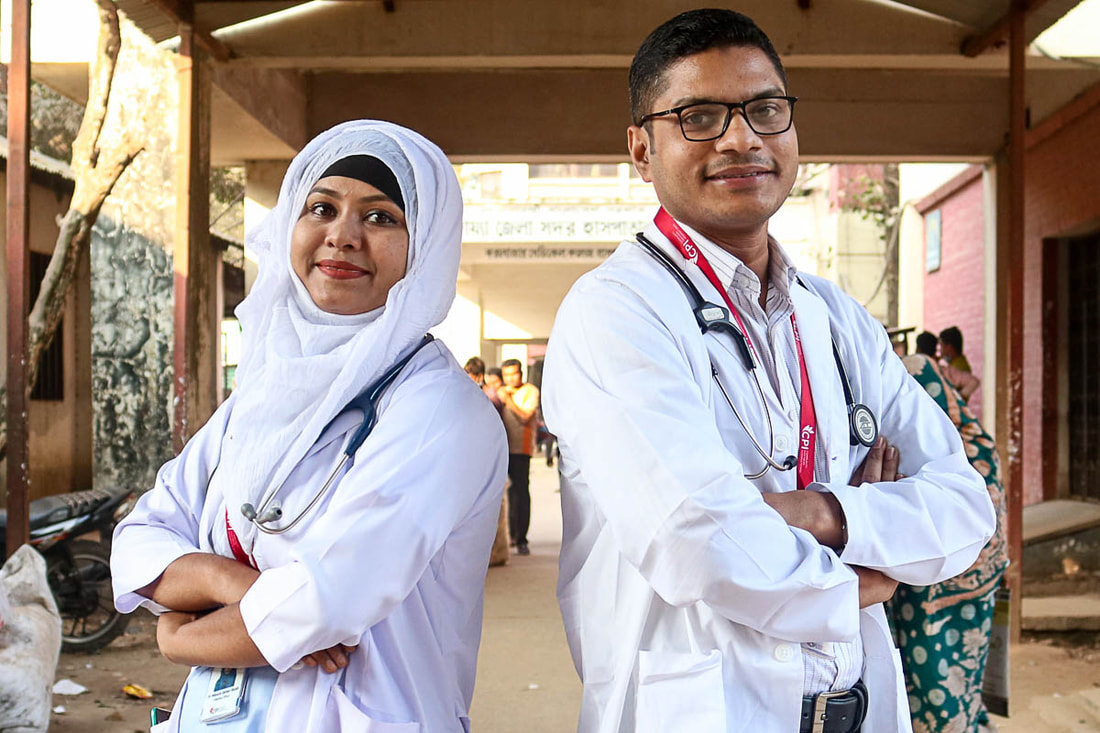
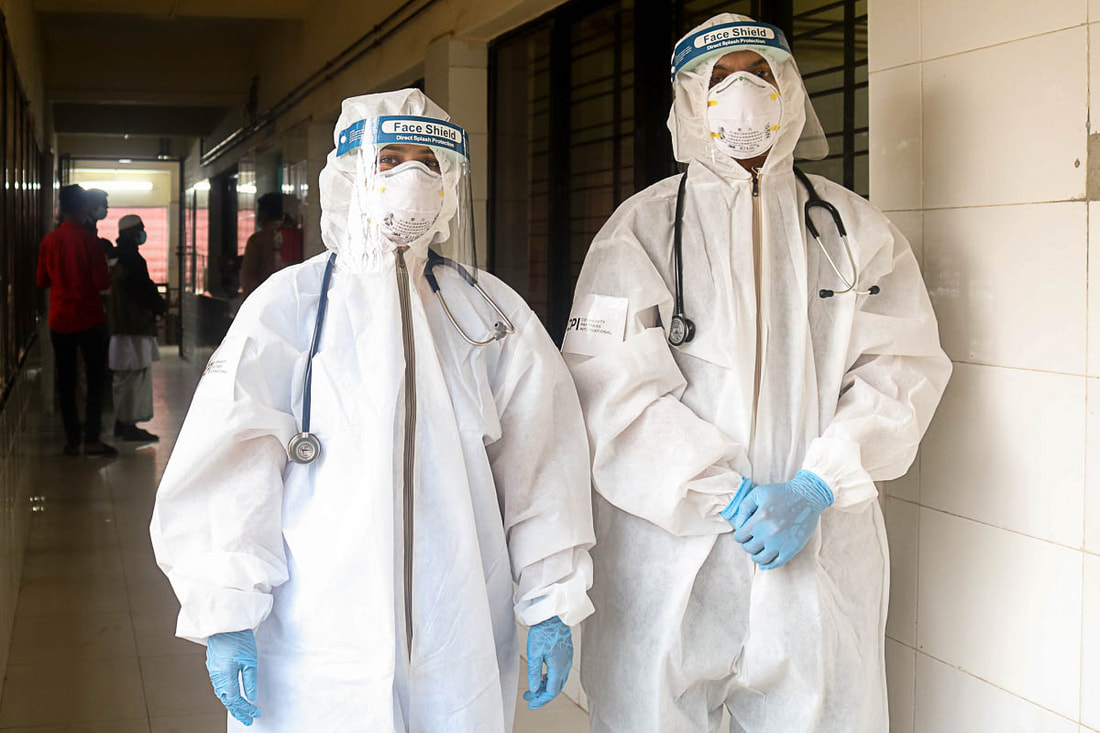
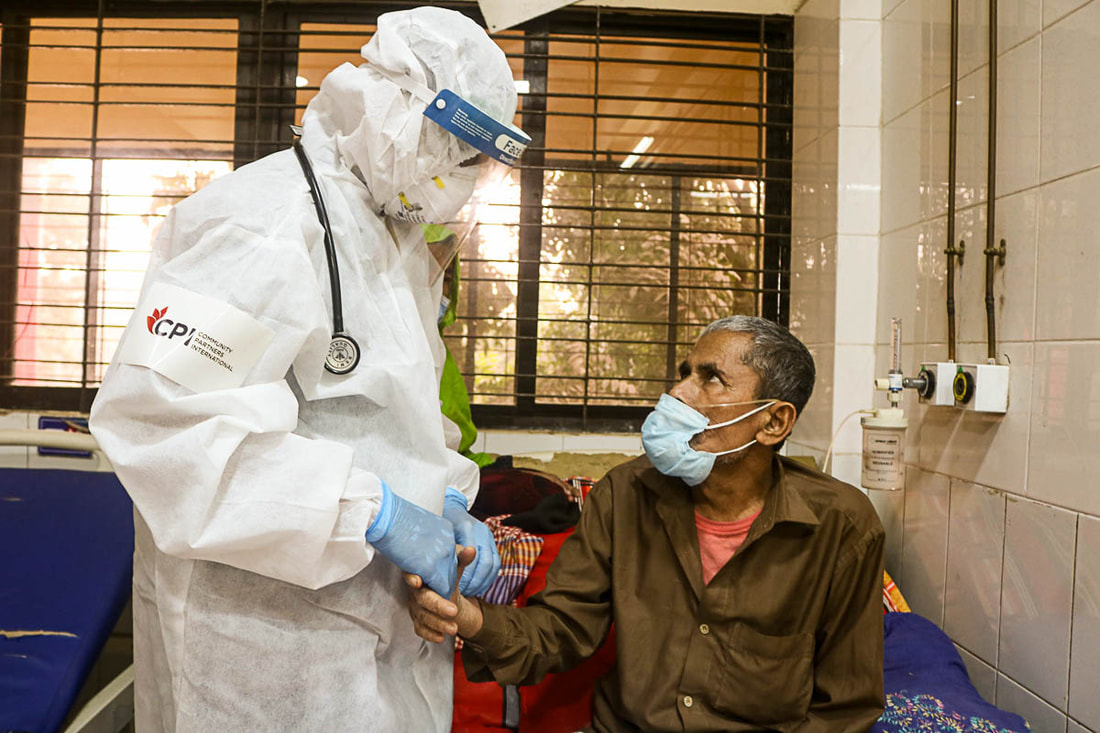
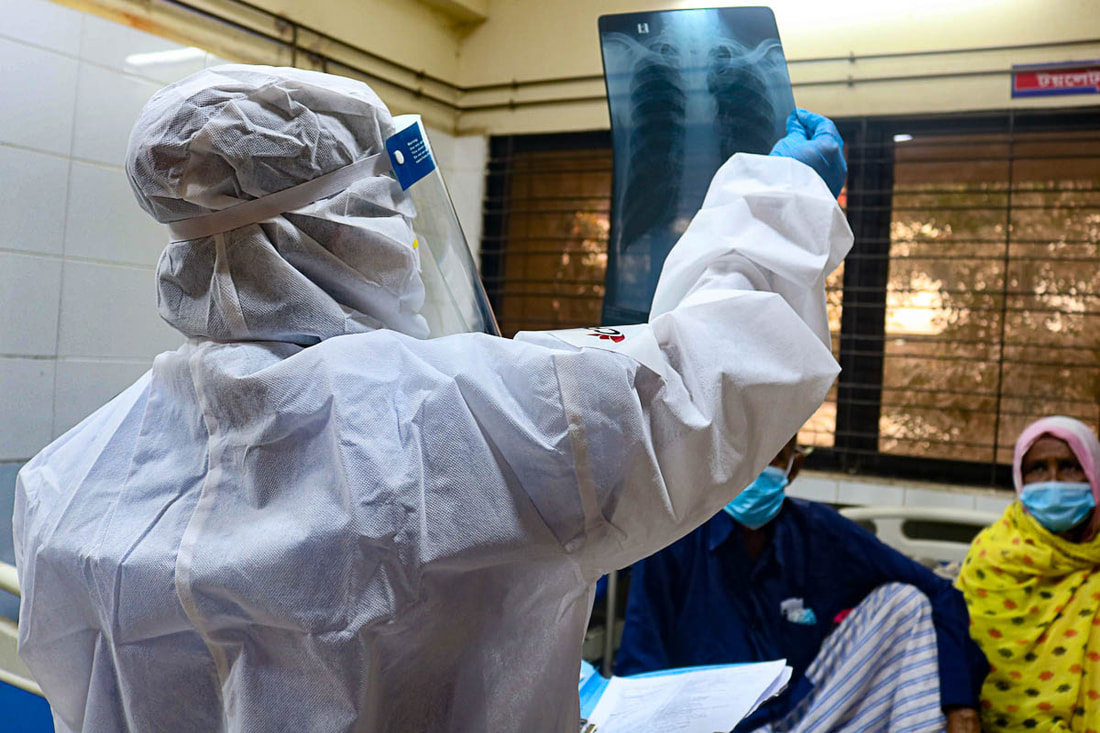
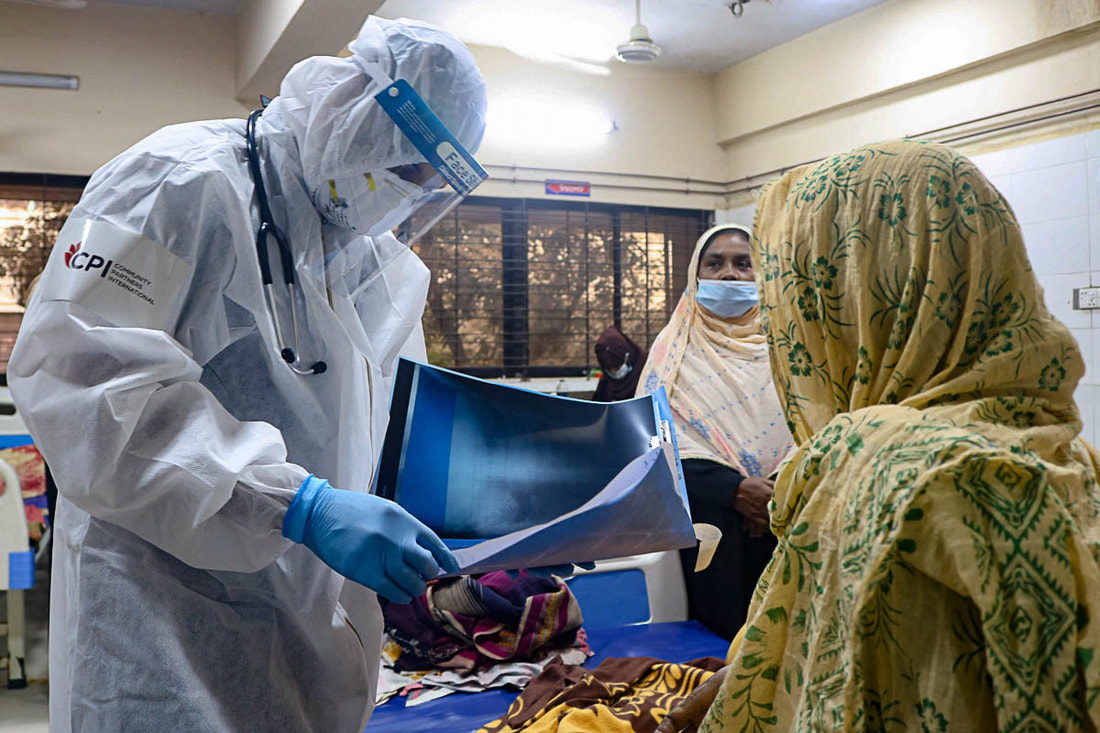
 RSS Feed
RSS Feed
